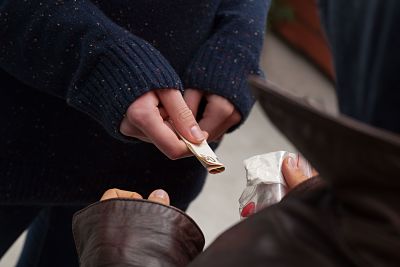Under Texas law, there are two forms of possession, either of which can result in serious drug possession charges. The first of these forms is known as actual possession and as its name suggests, occurs when law enforcement officers actually find illegal drugs in a person’s direct physical possession, such as in their hands or pockets. The other form of possession, however, known as constructive possession, is non-physical in nature and occurs when someone has a controlled substance in his or her care or control.
While it may seem unfair that a person can be charged with drug possession when he or she was never actually in possession of a controlled substance, the reality is that many people in Texas find themselves in this situation. This does not mean, however, that someone who has been accused of drug possession is without hope, so if you were arrested for drug possession, you should speak with an experienced Texas drug charges lawyer who can help you begin formulating a defense strategy.
Defining Constructive Possession
In Texas, someone can be charged with drug possession even when the substance in question wasn’t actually found on his or her person. However, in these cases, a prosecutor will only be able to obtain a conviction if he or she can prove that:
- The defendant knew that the drugs were present; and
- The defendant exercised control over the substance.
Of these elements, the first is often the most difficult for the state to prove, giving defendants a chance of avoiding an unfair conviction if they can prove that they weren’t aware of the drug’s presence, as demonstrated by their actions, statements, and conduct. Fortunately, even if the state satisfies this first element, a person can only be convicted of drug possession if the prosecutor can establish that the defendant had the ability and intent to control the drugs. This means that merely being in close proximity to an illegal drug is not enough to satisfy the elements of constructive possession. Instead, the state will need to demonstrate that the accused owns or is the only person who had access to the place where the drugs were located.

Defeating Allegations of Constructive Possession
Ultimately, poking holes in a prosecutor’s claims that a defendant had knowledge and control over a substance is the best way to avoid a drug possession conviction. This in turn, will require an assessment of the specific circumstances of the case, including:
- Whether the drugs were located in a common space;
- Whether the drugs were in plain view;
- Whether the accused owned drug paraphernalia;
- Who had access to the place where the drugs were found;
- Whether the accused intimated by actions or words that he or she knew of the drug’s existence; and
- Whether anyone else had access to the location where the drugs were found.
For help determining whether any of these factors could help you avoid a conviction for drug possession, please call our office today.
Experienced Legal Representation in Houston, Galveston, and League City
Please call (281) 280-0100 or fill out our online contact form to speak with one of the dedicated Houston drug charges lawyers at The Law Offices of Tad Nelson & Associates about your own pending charges.